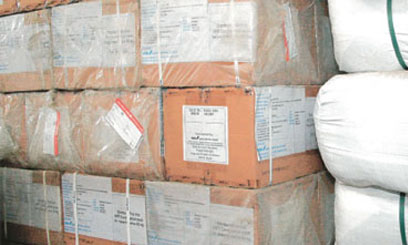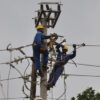NAIROBI, Kenya, Jun 16 – A study by the Contract Monitoring Kenya Network (CMKN), a multi-stakeholder group established to empower citizens to hold public authorities accountable and to espouse transparency in public contracting, has identified several factors that contribute towards inefficiencies in procurement in the education, water, construction and health sectors.
The network binds together stakeholders from the government and the private sector. Kenya Medical Supplies Agency CEO John Munyu acknowledged the increased importance of citizen participation in the procurement process.
“Citizens are becoming more assertive about their right to be informed and to influence the government’s decision making process. This has elicited new ways to evaluate performance besides the traditional government bureaucratic accountability mechanisms,” he explained.
Munyu said that the findings in the “Baseline Study on Public Contracting in Kenya” carried out by the CMKN is the starting point for Kenyans to be part of the solution.
The primary methodology of the study was a desk review of available reports and documents on public procurement reforms in Kenya starting from 2009 and it resulted in a summative review of the status of procurement in the targeted sectors that recommends what actions should be taken to reduce the existing gaps.
“The success of public projects is determined by a well defined contractual process of competitive bidding that seeks to protect the public against the squandering of public funds and prevents abuses such as fraud, favouritism and extravagance,” he stated.
“Corruption is further compounded by the lack of information and the veil of bureaucracy donned by public institutions and Kenya has continued to score poorly in the global corruption perception reports,” he revealed.
The study identified problems in the four key sectors including in poor planning, corruption, delays in payment, information communication technology, statutory amendments, payment procedures and public participation.
Munyu emphasised the value of feedback from citizens in strengthening the monitoring of the public sector.
“The clamor for good governance in Kenya entails that citizens hold the government accountable,” he said.
“I however wish to highlight that the exercise of monitoring is not only to bring out the negatives, but also to profile success that can be emulated in other sectors regionally and worldwide,” he added.
CMKN ran into several limitations while conducting the study because some public institutions blatantly refused to share information or provide documents to assist their research, many of the reports marked confidential were not available for distribution or reference and some of the public agencies’ websites were outdated and featured very old reports that didn’t offer any relevant information on the current status of procurement.
Similar networks have been launched in Zambia, Uganda, Tanzania, Rwanda, Nigeria, Ghana, Sierra Leone and Liberia, and CMKN intends to use the results from the study to build the capacity of citizens to monitor public contracting, while advocating for leadership with integrity and the free access to information.






















